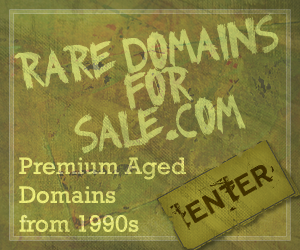Decentralized Self reliant Companies (DAOs) were a hot matter on this planet of blockchain and cryptocurrency because the concept was once first presented in 2013. DAOs are companies that are run by way of good contracts on a blockchain, with no important authority or governing physique. These companies operate in keeping with ideas encoded in their smart contracts, and decisions are made thru balloting mechanisms implemented within the code.
The theory at the back of DAOs is to create autonomous entities that can function with out human intervention, allowing for more transparency, effectivity, and security. The evolution of DAOs has been a captivating journey, with many challenges and improvements along the best way.
The idea that of DAOs was once first presented in 2013 through Daniel Larimer, who proposed the speculation of a decentralized self sufficient agency (DAC). Alternatively, it wasn’t until the creation of “The DAO” in 2016 that the concept that gained standard consideration. The DAO was a project capital fund constructed on the Ethereum blockchain, permitting traders to vote on which projects to fund. It raised over $one hundred fifty million in crowdfunding, making it the most important crowdfunding undertaking at the time.
Unfortunately, The DAO used to be exploited through a hacker who drained over $50 million from the fund, resulting in a contentious hard fork of the Ethereum blockchain to reverse the theft. This incident highlighted the vulnerabilities of DAOs and raised questions about their security and governance mechanisms.
In the aftermath of The DAO hack, many projects started to explore alternative fashions for growing DAOs. One such mission used to be Aragon, which aimed to provide a framework for creating decentralized organizations with built-in governance mechanisms. Aragon introduced the idea that of decentralized independent companies (DAOs) as we all know them these days, with a focal point on developing digital jurisdictions for firms to function inside.
Because then Steady Capital, we’ve got considered a proliferation of DAO structures and initiatives, every with its own unique way to governance, choice-making, and incentives. Projects like DAOstack, Colony, and MolochDAO have all contributed to the evolution of DAOs, experimenting with completely different vote casting mechanisms, token economics, and governance constructions.
One of the vital key challenges dealing with DAOs is scalability and usefulness. Many current DAO platforms are limited with regards to the collection of individuals they may be able to give a boost to and the complexity of the decisions they may be able to deal with. As DAOs proceed to adapt, scalability can be a key focus area for future development.
Another challenge is regulatory uncertainty. DAOs operate in a felony gray area, with many questions surrounding their prison standing and liability. As governments world wide begin to take notice of decentralized companies, we are prone to see elevated regulation and scrutiny of DAOs one day.
Regardless of these challenges, the opportunity of DAOs is vast. By using developing organizations that function in keeping with code slightly than human discretion, DAOs have the potential to revolutionize the best way we govern and arrange ourselves. They may let new forms of collaboration, coordination, and choice-making, unlocking new possibilities for innovation and social exchange.
The evolution of DAOs remains to be in its early levels, and there may be so much work to be done to understand their full attainable. As we continue to discover the probabilities of decentralized independent businesses, it is very important study from previous failures and to way the improvement of DAOs with caution and care. Only via mutually experimenting, iterating, and refining the idea that of DAOs can we actually harness their transformative power.



